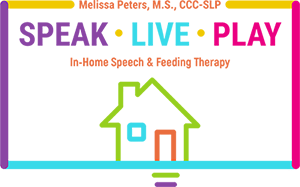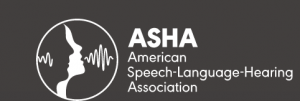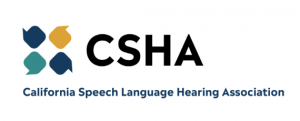When you think of it, you require various muscle coordination to eat your food. First, you need to lift the food using a spoon, fork, or hands and put it in your mouth. Once in your mouth, it is time for your teeth to cut the food into small bits. After this, you need to engage your swallowing muscles. As you can see, while it may seem simple, the process involves accurate muscle coordination and timing. You are all familiar with what goes on when there is a miscalculation in this muscle coordination. When your drink goes the wrong way, you will cough. Even worse, a large chunk of meat can easily choke you to death.
A person suffering from a swallowing disorder is faced with this problem every time they are eating or drinking. Dysphagia is the medical term used to describe swallowing disorders. At Speak live play, we work with individuals suffering from swallowing problems. Our speech and swallow pathologists’ focus is to ensure that the patient maintains adequate nutrition intake while maximizing the protection of their airway.
What are the main swallowing problems?
Swallowing is a three-stage process. Swallowing disorders develop when you have an issue in one or a combination of these stages.
- The oral phase is the first stage that involves chewing, sucking, and moving your food or drinking into your throat.
- Pharyngeal phase – This second phase involves what happens when you start swallowing and squeezing the food down the throat. Here, it would help if you closed off the airway to block the liquid or food from choking you.
- Esophageal is the third stage. The phase involves closing and opening the tube that goes from your mouth to the stomach (esophagus). The primary function of the esophagus is to push food down to the stomach. If the muscles do not function properly, the food can be stuck in this tube, blocking the airways. Blockage in the esophagus can also make you throw up.
Swallowing problems can appear at any stage, although they are most common in the elderly. Dysphasia has many causes, and the treatment often depends on the condition causing it. The primary condition that causes swallowing problems includes:
Swallowing problems can appear at any stage, although they are most common in the elderly. Dysphasia has many causes, and the treatment often depends on the condition causing it. The primary condition that causes swallowing problems includes:
- Damage to the part of the brain or nerves resulting from any of these conditions/diseases
- Brain injury
- Stroke
- Parkinson’s Disease
- Motor neuron disease
- Cerebral palsy
- Friedreich ataxia
- Alzheimer’s disease
- Multiple sclerosis (MS)
- Huntington’s disease
- Muscular dystrophy
- Problems with your head or neck, such as:
- Mouth, esophagus, or throat cancer
- Poor dentition such as missing teeth, decaying teeth, or dentures that do not fit well
- Neck or mouth surgery
- Medication that causes a dry mouth, making it hard to swallow and chew
Why do people with swallowing problems need dysphagia therapy?
Swallowing problems often cause food and drinks to become lodged in the airway. For most individuals, a small amount of saliva falling into the airways triggers a reflexive cough. While this may not do you any harm, this is not the case for individuals who have had a stroke or other neurological diseases that may harm their body reflexes. This means that their protective reflexes, such as coughing, may not work. As such, food and drinks may fall into the open airway causing numerous illnesses.

The lungs are moist and warm, thus creating a perfect breeding ground for bacteria. When the food and beverages fall into the lungs, these individuals are at risk of having aspiration pneumonia. When left untreated, this condition is fatal. The patient is often put under nil by mouth in hospitals, meaning that they are not capable of eating or drinking until a swallow and speech pathologist assesses their swallowing safety.
This is where we come in. At Speak live play, we are committed to helping individuals swallow problems to manage the condition once discharged from the hospital. Our speech and swallow therapist may suggest the following modifications to manage an ongoing swallowing problem.
- Modifying food texture and drink thickness
- Recommending the correct sitting positions during mealtimes
- Therapy exercises that strengthen the muscles used while swallowing
- Teaching the various patient techniques to use while swallowing
A patient with an acquired brain injury will benefit from swallow therapy as it will help them strengthen the muscles that coordinate swallowing. Individuals suffering from deteriorating or progressive conditions such as Parkinson’s disease will also need the intervention of a speech and swallow pathologist. A swallowing therapy program can provide strategies to compensate for the weak muscles. At the Speak live play, we also teach the caregiver how to modify the food texture and drink thickness. Our mission is to help the patient enjoy a happy life by ensuring that they enjoy their drinks and food without compromising their health.
Signs of dysphagia and when to seek help
So when do you need to seek help? If you or your loved one has the following signs, they may be suffering from dysphagia.
- Constant coughing during or immediately after eating or drinking
- Struggling to chew or swallow. The person may use be forced to use extra effort or more time to chew and swallow food
- A gurgled or wet sounding voice after eating and drinking
- Excessive saliva in the mouth
- Food or drinks leaking from your mouth onto your cloth
- Having difficulties breathing during or after meals
- Rapid weight loss
Having a problem doing simple things such as eating can be embarrassing. Most often, you or your loved one may want to eat alone. Individuals with swallowing problems may also experience the following:
- Poor nutrition that causes rapid weight loss
- Dehydration since they are not capable of swallowing
- Pneumonia and other lung infections
Swallowing Assessment
Screening people with one or a combination of the signs mentioned is vital to avoid malnutrition, choking, and other complications such as pneumonia. At Speak live play center, our highly skilled pathologist will assess to see how you eat and drink. Like other diseases, when swallowing difficulties are identified early, our specialist can tailor care and treatment that responds to the specific needs of the patient. Our speech therapist will ask you a series of questions to help them develop a detailed assessment of your swallowing abilities. Here are some of the things that you can expect from our assessment.
- The speech therapist will ask you about your health. Here you will discuss things such as past surgeries, illnesses, and past swallowing problems.
- The specialist will also perform an oral-motor assessment, which mainly involves investigating the functioning of your cranial nerves and assessing the anatomy and physiology of the muscles responsible for the swallowing process.
- Our speech and swallow therapist will also assess the capability of your swallowing muscles when handling foods and drinks with different textures
- People with swallowing problems use extra effort when eating and swallowing. Our swallowing pathologist will assess how you are swallowing change when the muscles become fatigued.
- We will also review how you implement our recommended swallowing strategies when eating and drinking
- The specialist will also recommend further testing if the need arises
What does dysphagia therapy involve?
We understand, no two patients’ conditions are the same. As such, we strive to come up with a personalized therapy program that meets your unique needs. Speak live play will work with you to ensure that you take your meals and drink safely. Our swallowing therapy combines various techniques and treatment that helps to strengthen your swallowing muscles. The therapy involves
- Treating your swallowing/chewing muscles
- Training the patient on ways to sit and hold their head when eating or drinking
- Testing differently textured foods and finding the ones that have an easy texture for you to swallow safely.
Our speech and swallow therapist will typically book you in a block of sessions that runs about 45 minutes. We also perform the swallow therapy sessions at the comfort of your home. The home-based swallow therapy sessions will help the patient to use familiar cutlery. We will also engage the caregivers to help them understand your condition and teach them how they can help you manage it. We may also refer you to other health professionals who will help manage other conditions associated with your swallowing problems. These medical professionals include;
- General Practitioner (GP) to manage an underlying condition
- Ear, Nose, and Throat doctor (ENT) to review possible reflux
- Dietitian who ensure that the patient gets enough hydration and nutrition
- A pharmacist who will help in managing your swallowing tablet medications
In Speak Live Play, our swallowing therapy program is designed to help avoid dehydration, choking, aspiration pneumonia while ensuring that they get their daily dietary requirements. Our speech and swallow pathologists use advanced current methods and modalities to ensure that the patient swallows safely. Through our intensive dysphagia therapy, our goal is to assist the patient in regaining their independence.





